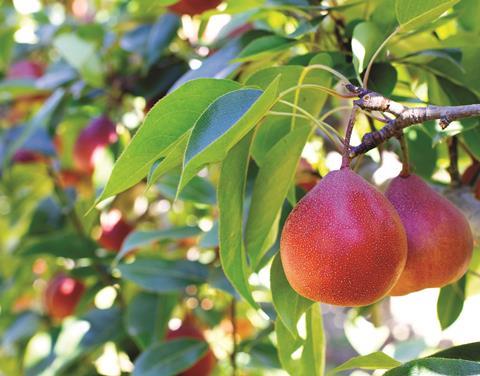Leading apple and pear development organisation says New Zealand’s NZ$1bn export industry could be at risk if the Bill does not proceed
New Zealand-based variety development organisation, Prevar, has called on the New Zealand government’s Select Committee to progress the proposed Gene Technology Bill which would see significant updates to New Zealand’s regulatory approach.

In its submission to the Committee, Prevar’s chief executive Tony Martin said the future success and viability of the fruit and pear export industry relied on its continuous innovation.
“Our apple and pear industry has thrived on innovation, growing into a NZ$1bn export powerhouse that has outpaced national export growth over the past decade,” Martin said.
However, he warned that past innovation alone would not sustain the industry’s future growth.
“The global apple and pear market is worth approximately NZ$130bn, yet New Zealand accounts for less than 1 per cent of that in market share,” he said. “We’re not a volume player – the only way we are going to continue to compete globally is through innovation.”
According to Martin, traditional breeding takes 15-to-20 years to develop a commercially viable variety.
“Advanced breeding technologies such as gene editing can dramatically shorten this timeline,” he said. “This technology offers growers a real opportunity to tackle climate change, pest and disease pressures, consumer demand for fruit grown with fewer chemical inputs, and a market that increasingly values superior taste, texture, and nutritional benefits.”
Prevar holds exclusive access to the genetic material in Plant & Food Research’s apple and pear repository in New Zealand, allowing it to commercialise and license new varieties worldwide through its network of approximately 35 licensees.
Martin explained that apple and pear growers were increasingly open to gene editing, particularly for its potential to reduce reliance on pesticides and lower production risks, enhance health and nutritional benefits for consumers, strengthen intellectual property protection, and accelerate the innovation pipeline.
“Our core mission is to cultivate the world’s best apples and pears. When specific challenges demand precise and timely solutions, we should embrace available technologies like gene editing as a complementary tool,” he said. “This isn’t about replacing traditional breeding – it’s about ensuring New Zealand growers remain at the leading edge in a rapidly evolving and increasingly competitive global market.”
Martin described the proposed Gene Technology Bill as a crucial step toward modernising New Zealand’s regulatory framework for genetic innovation.
“This legislation will help our apple and pear industry stay ahead of global competitors while meeting the evolving needs of consumers, growers, and the environment,” he said.
“Prevar strongly supports the responsible use of gene editing to develop improved apple and pear varieties and address some of the industry’s most pressing economic, environmental, and social challenges.
“The continued success of our apple and pear industry relies on staying at the forefront of science. As the saying goes, ‘When you’re on top of your game, you need to adapt your game’.”



